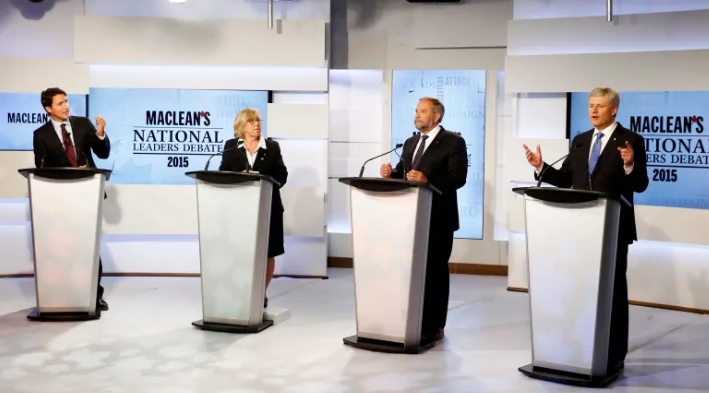A new partnership of news organizations will produce two federal election debates in the second week of October that will be free to broadcast, according to the Leaders' Debates Commission.
An English leaders debate is proposed for Oct. 7 with the French debate proposed for Oct. 10, with those dates to be finalized.
Canada's first-ever debates commissioner, former governor general David Johnston, announced Wednesday that the Canadian Debate Production Partnership (CDPP) will be the official producer of the federal leaders debates this fall.
The partnership is made up of:
- CBC News.
- Radio-Canada.
- Global News.
- CTV News.
- The Toronto Star and the Torstar chain.
- HuffPost Canada.
- HuffPost Quebec.
- La Presse.
- Le Devoir.
- L'Actualité.
Both debates will be held in the Ottawa area.
The debate partnership will promote, produce and distribute the French and English leaders' debates, and they'll be broadcast for free.
Anyone can stream them for free, and anyone can host a live viewing party, the media release said.
The debates will be available in English, French, some Indigenous languages and non-official languages, plus American sign language, Quebec Sign Language, (known in French as Langue des Signes Québécoise), closed captioning and described video.
Criteria for choosing participants
"The CDPP is able to reach a large number of Canadians, across the country, on a variety of platforms. We respect their experience delivering quality political journalism, their rich history producing engaging and informative journalism and their journalistic integrity," Johnston wrote in a statement.
Last fall, the government announced plans to set up an independent debates commission, along with the criteria for deciding which parties get to participate.
The criteria say in order for a party's leader to participate in the debates, that party must meet at least two of three criteria:
- It must have at least one MP elected under that party's banner.
- It must intend to run candidates in at least 90 per cent of Canada's 338 ridings.
- It must have obtained at least four per cent of the vote in the previous election or have a "legitimate chance" of winning seats, based on polling data and at the discretion of the commissioner.
The themes and questions of the debates will be determined by the producers — as long as the commissioner finds these to be in accordance with his mandate to ensure the debates meet "high journalistic standards."
Following the election, Johnston will file a report to Parliament detailing lessons learned and offering recommendations for enshrining the debate commission into law.
Clarifications
An earlier version of this story contained details about the timing of the debates and the languages being offered in translation, neither of which have been finalized.
Jul 31, 2019 11:11 AM ET




























